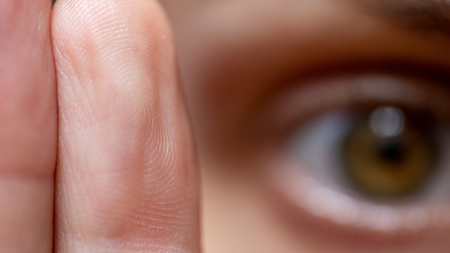Natural Approaches to Hormone Balance And Menopause Relief

Menopause is a natural phase in a woman’s life that brings about significant hormonal changes. These hormonal changes are often unpleasant. For one, hormone imbalance during menopause can lead to various symptoms, including hot flashes, mood swings, sleep disturbances, and more. Finding relief through menopause may seem as an elusive goal.
To help with these symptoms, hormonal therapy is often advised. While hormonal therapy is a common treatment option, many women look for holistic and natural approaches to hormone balance to alleviate these symptoms.
This article explores traditional remedies for menopause relief. With these approaches, you can achieve hormonal balance and comfort during the menopausal transition.
Understanding Hormone Imbalance and Menopause
Hormone imbalance is like a wild rollercoaster ride for your body. It happens when the delicate balance between estrogen and progesterone hormones goes haywire. It happens most often during menopause.
Menopause marks the end of a woman’s reproductive years. It typically occurs around the age of 50 when the ovaries cease to release eggs, leading to a significant drop in estrogen and progesterone levels. This hormonal shift can cause various menopausal symptoms.
Traditional Herbal Remedies for Menopause Relief
While these remedies may not be a substitute for medical treatment, they can offer natural relief for some women experiencing menopausal discomfort. However, we advise you to consult with a healthcare provider before using any herbal remedies to ensure they are safe for you.
Here are some traditional herbal remedies for menopause relief:
Black cohosh
Hot flashes are those sudden bursts of fiery heat in the body. Black cohosh is one of the most well-known herbal remedies for menopause. It may help alleviate hot flashes, night sweats, and mood swings. While its exact mechanism of action is not fully understood, it is believed to have estrogen-like effects.
Red clover
Red clover is another phytoestrogen source that relieves hot flashes and night sweats. When estrogen levels dip during menopause, this plant contains isoflavones that act like a natural estrogen replacement therapy, helping ease symptoms like hot flashes and night sweats.
Soy
Some women find that incorporating soy products like tofu and soy milk into their diet helps reduce menopausal symptoms. Soybeans contain phytoestrogens, which are plant compounds that have a similar structure to the hormone estrogen. These compounds can mimic the effects of estrogen in the body and are sometimes referred to as “dietary estrogens.”
Dong Quai
Dong Quai, scientifically known as Angelica sinensis, is a traditional herbal remedy that has been used for centuries in traditional Chinese medicine (TCM) and other traditional healing systems, particularly in East Asia. It is often called the “female ginseng”. It is a remedy for women’s health issues, including menstrual irregularities, menopausal symptoms, and hormonal imbalances.
Chasteberry
Chasteberry is believed to balance hormones by affecting the pituitary gland. Specifically, it may help balance the production of hormones such as prolactin, luteinizing hormone (LH), and follicle-stimulating hormone (FSH). It can be helpful for managing irregular periods, mood swings, and breast tenderness.
Some women also report improved mood swings, irritability, and emotional symptoms associated with premenstrual syndrome (PMS) or premenstrual dysphoric disorder (PMDD) when using chasteberry.
Evening Primrose Oil
Evening primrose oil contains gamma-linolenic acid (GLA), which may help mood swings, breast tenderness, and dry skin. GLA is believed to have anti-inflammatory properties and may affect hormone regulation. It’s available as an oil or in capsule form. However, the scientific evidence regarding the efficacy of evening primrose oil is mixed. While some studies suggest potential benefits, others have not found significant effects. The response to evening primrose oil may vary among individuals.
Conclusion
Menopause is a transformative phase in a woman’s life characterized by significant hormonal changes that can often lead to discomfort and distress. While hormonal therapy remains a conventional approach to managing these symptoms, many women seek natural and holistic remedies for menopause relief.
Every woman’s experience with menopause is unique, and the path to relief may vary. By exploring traditional remedies in consultation with healthcare professionals and embracing a holistic approach to wellness, you can find the balance and comfort they seek during this natural and transformative phase of life.


Leave a Reply
You must be logged in to post a comment.